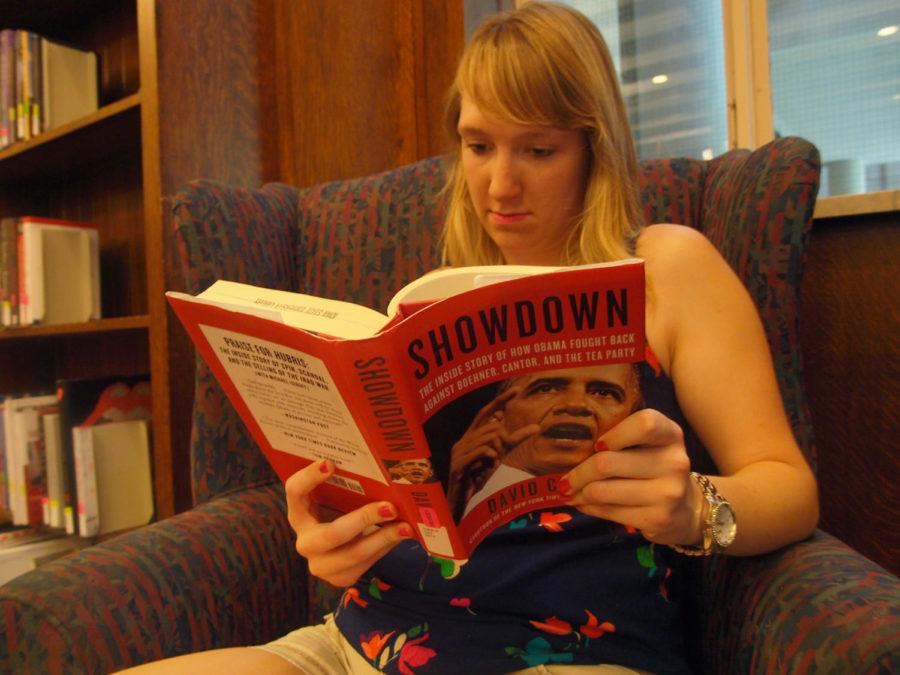Women break male perspective in political office
Photo Illustration: Nur Surya Abu/Iowa State Daily
Since the passing of the 19th Amendment, the involvement of women in politics expanded from the right to vote to political governance. Hillary Kletscher, junior in bio-systems engineering, is currently serving as vice president of the Government of Student Body.
September 5, 2013
During the 2012 race for the Iowa United States House of Representatives, there were 12 candidates running, one woman and 11 men.
Christie Vilsack was the only woman to run but was defeated by incumbent Steve King.
Vilsack is not the first woman to run and be defeated. A woman has never served as an Iowa representative in Congress or as Iowa’s governor, which brings to question the struggles women in politics face today.
“Women who run for political positions are respected for their ambition, but often questioned on a different level,” said Hillary Kletscher, vice president of the Government of the Student Body.
In the past 100 years, women have made progress both on the local and national levels. For example, according to the Ames Historical Society website, Etta Lee Fellinger became he first female mayor of Ames in 1976.
Since then, the current mayor Ann Campbell has joined her on the short list of women mayors. Campbell has served as mayor of Ames since 2006.
In the 113th congress, there are 20 women senators. The first women sworn into the Senate was Rebecca Latimer Felton of Georgia in 1922.
“Women bring different perspective to the conversation based on their own experiences,” said Lisa Heddens, an Iowa representative of the 46th District.
Even though many women are qualified for governmental positions, they may still face certain stereotypes.
“Women running for political positions are often criticized on their appearance … and personality before being criticized on their political views or leadership style,” said Som Mongtin, interim director of the Margaret Sloss Women’s Center.
Women have been and still are underrepresented in the government today. According to the Center for American Women in Politics Foundation, in 2013, women hold only 17 percent of seats in Congress.
“Traditionally, our society sees political leadership led by people with only a male perspective,” Kletcher said. “It’s often an uphill battle when it can feel like they are entering a ‘boys club.’ Research shows that having a family can help men get promotions, but for women a family can create another time commitment that requires explaining.”
An article by the Center for American Women and Politics states that 78 women from 31 states serve in the House of Representatives, and women continue to progress into political positions.
“The pool of women is generally lower than the pool of men, but that is changing rapidly,” said U.S. Sen. Chuck Grassley. “More women in politics, more women in elective office, we’ll have better government.”







